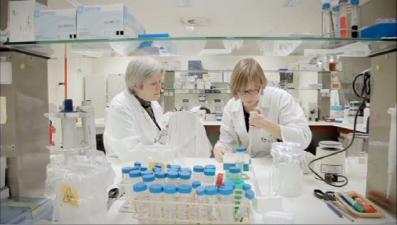Joshua Silver
Self-adjustable eyeglasses
Left uncorrected, poor vision can stunt reading skills and hinder prospects - a prevalent problem in the developing world where there is a lack of eyecare professionals. Joshua Silver's simple, yet innovative invention of self-adjustable eyeglasses offers hope for millions.
The majority of today's glasses are manufactured with solid lenses that must be shaped to the proper thickness, requiring professional skills and expensive equipment.
These solid lenses also cannot be adjusted, requiring the purchase of new glasses as advancing age makes it difficult for individuals to focus on close objects, a condition called presbyopia.
Joshua Silver, a professor of physics at the University of Oxford, first had the idea to manufacture adjustable lenses for the poor, removing the need for expensive equipment and professionals, in May 1985 after he had created a variable focus lens out of curiosity.
His invention allows wearers to adjust the glasses to their personal prescription without the assistance of a healthcare professional. They simply look at a reading chart and adjust the glasses until they can see the letters clearly.
The glasses use durable but flexible plastic lenses, which have fluid sacs filled with silicone oil between them. These glasses can easily be adjusted by the wearer by simply adding or removing some of the oil in the sacs.
The invention is not without its limitations, however. Currently, the principle only functions successfully with circular lenses, limiting the design opportunities. Additionally, the principle can only alter the magnification of objects, so the glasses cannot treat those with astigmatism. What these spectacles lack in aesthetics, however, they make up for in spades with utility and work on non-round lenses is already underway.
Uncorrected vision problems are estimated by the World Health Organisation (WHO) to result in significant losses in productivity annually - about $121 billion (€88.2 billion).
These lenses have the potential to dramatically improve quality of life.
Silver's ambitions are lofty - he hopes that his glasses will reach one billion people by 2020. He has been developing the technology since 1985, and he is still working on it.
He aims to get the cost of producing the glasses down to about $1 a pair from their current production cost of about $19, and distribute about 100 million pairs annually.
With the help of distributors, over 30 000 pairs of Silver's glasses have been sent around the world - reaching about 20 countries such as Ghana, Liberia, Bolivia, Cameroon, Pakistan, and Kosovo. This is a small step towards his vision of bringing clear vision to the whole world.
Patent number:
Contact
European Inventor Award and Young Inventors Prize queries:
european-inventor@epo.org Subscribe to the European Inventor Award newsletterMedia-related queries:
Contact our Press team#InventorAward #YoungInventors


